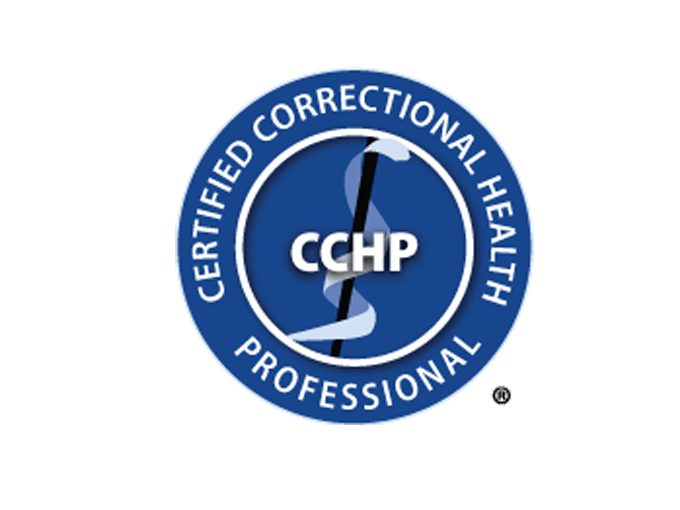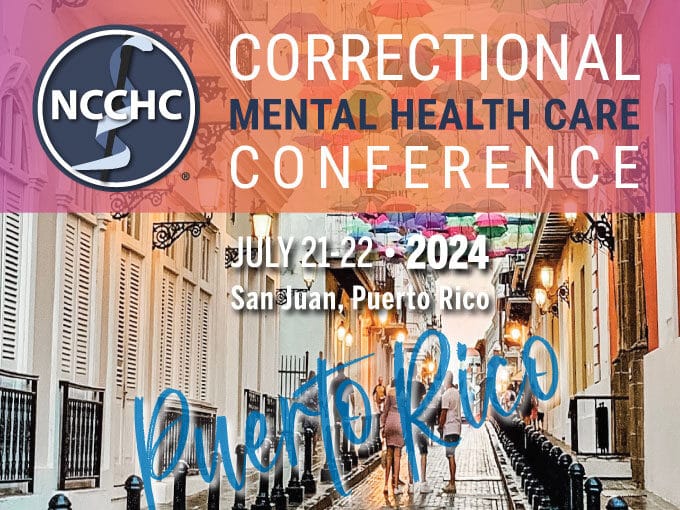
Standards Q&A: 75% Custody Health Training Requirement
Does the 75% requirement refer to all custody staff or only those working during
Home Misperceptions of Correctional Mental Health: It’s Time to Drop the Old Stereotypes
 Mar 22, 2022
Mar 22, 2022Correctional mental health services are often criticized with broad-brush comments citing conditions and services that, in many jurisdictions, are a thing of the past. But what’s overlooked is the progress that’s been made in a field and discipline where so many complex and deep-rooted challenges exist. Historically, mental health care was, at best, an afterthought by correctional administrators, and even our medical colleagues. Today, it is well understood to be an essential component of a multidisciplinary approach to caring for people incarcerated in jails and prisons.
Barriers, But Not Insurmountable
This is not to suggest that mental health care in correctional settings across the nation is uniformly of the highest quality. In 1976, the Supreme Court ruling in Estelle v Gamble established that failure to provide adequate health care is considered deliberate indifference and therefore constitutes cruel and unusual punishment, which is prohibited by the Eighth Amendment to the U.S. Constitution. But there are no national regulations that mandate minimum requirements of care nor standards of care, and so states and counties vary in their health and mental health services. The National Commission on Correctional Health Care’s standards are the best in the field, yet adherence to these standards is strictly voluntary.
Correctional facilities are extremely challenging places to provide mental health services for many reasons. The largest impediment is often financial. Correctional budgets typically do not have the funding necessary to ensure appropriate staffing levels for mental health. Mental health professionals are often burdened with large caseloads and very limited resources, such as access to treatment materials.
The correctional mental health mission is not wholeheartedly supported by the general public or policy makers, which makes our jobs more difficult. We see ambivalence about how much money and effort should be spent taking care of “criminals.” On one hand, the public is outraged when news reports describe subhuman conditions in correctional facilities for those with mental illness or other disabilities. Yet, on the other hand, many hold a “lock ‘em up and throw away the key” attitude about those who engage in criminal behavior. This creates a challenge for those in charge of allocating funds to appropriately care for incarcerated people with mental illness.
The physical plant of most correctional facilities also presents obstacles. Prisons and jails were not built as mental health facilities. Nevertheless, they have become so over the past 50 years as the closure of state hospitals displaced individuals with serious mental illness (SMI) to the community and then, inevitably, to our jails and prisons. Private and confidential areas to conduct evaluations and treatment remain scarce, as does space to conduct group treatment or activities.
One often cited concern is the condition of patients with mental illness who are housed in isolation. In 2007, NCCHC affirmed through a position statement its policy against mistreatment of incarcerated individuals and that position is represented in numerous standards. In 2016, NCCHC released a position statement asserting that prolonged use of isolation is cruel, inhumane, degrading, and harmful to health, and that mentally ill individuals should be excluded from solitary confinement of any duration. (Find NCCHC position statements here.)
No matter the label used —for example, restrictive housing, special management, close management, maximum management, or other terms — isolation is defined as when someone is locked in a room for 22 or more hours per day. The issue of isolation is significant as there is clear evidence that it exacerbates pre-existing mental health conditions and has long-term health consequences. Individuals with SMI are a particular concern. The correctional response to ensure they are excluded from placement in isolation varies, with many correctional systems adopting such policies preemptively, others doing so because of litigation, and yet others defiantly against making such a change. But the trend is toward reducing or eliminating use of isolation, and that is heartening.
Contemporary Practices
How correctional facilities are rethinking use of isolation is an example of how correctional mental health in general is evolving, expanding, and improving. Over the past 20 years correctional systems have increased mental health services, either proactively or in response to litigation. Most facilities now have:
These significant improvements in mental health services will yield better outcomes for our patients. While great strides have been made over the past 20 years, much work remains to be done to improve mental health services provided to our incarcerated population. But as the nation and its policy makers grasp the enormity of this problem, and its public health impact as people with mental illness cycle through correctional systems, we are confident that the field will continue to progress.
By Joel Andrade, PhD, LICSW, CCHP-MH and Sharen Barboza, PhD, CCHP-MH, on behalf of the National Commission on Correctional Health Care


